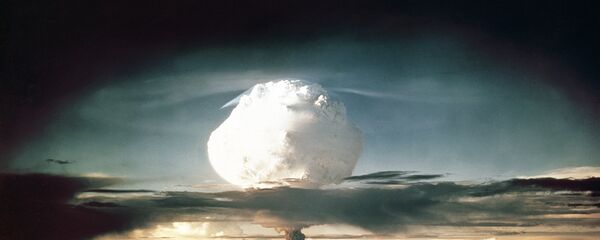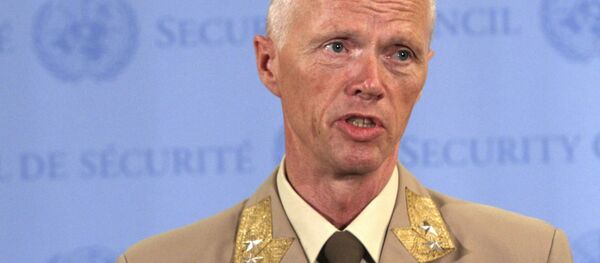The International Campaign Against Nuclear Arms (ICAN) received the Nobel Peace Prize in Oslo City Hall the past weekend. This summer, 122 nations supported the UN Treaty on the Prohibition of Nuclear Arms. None of the NATO members, including Norway, voted in favor of the treaty, which undermines their security, Torgeir E. Fjærtoft of the University of Oslo pointed out in an interview with Dagsavisen, a daily newspaper.
"NATO's current nuclear strategy is unsustainable. The crises during the Cold War era revealed that nuclear weapons strategies become dangerous precisely when they are meant to deter, namely during political confrontations," Fjærtoft argued.
"In today's debate on banning nuclear weapons, everyone seems to forget that older statesmen in the US, Russia and Germany were in favor of it as far as a decade ago. Several of them possessed an in-depth knowledge of both nuclear weapons and nuclear weapons strategies, such as veteran diplomat Henry Kissinger, the Soviet Union's last leader Mikhail Gorbachev and Germany's former government chief Helmut Schmidt. They all said the West's defense must avoid having a backbone made of nuclear weapons," Fjærtoft said.
According to Fjærtoft, the idea of having nuclear arms is to make the very risk of a nuclear war unimaginable. To achieve this, the threat of using nuclear arms must be both credible and impossible at the same time.
Today in History, November 20, 1962 – Cuban missile crisis ends: In response to the Soviet Union agreeing to remove its missiles from Cuba, U.S. President John F. Kennedy ends the quarantine of the Caribbean nation. #history #coldwar #jfk #cubanmissilecrisis #cuba pic.twitter.com/TrWKdkOsxL
— Today In History (@TiHistoryTweets) November 21, 2017
Fjærtoft referred to the 1962 Cuban Crisis as arguably one of the coldest points of the Cold War, when both parties used nuclear threats, albeit to force the counterpart to give up, not start an actual war of mutual annihilation.
"Fortunately, it was solved. However, part of the nuclear arms strategy is to make the counterpart unsure of whether you are willing to press the button or not. And should the counterpart fear you might be the first to do so, they must beat you to it," Fjærtoft said.
Based on such a strategy, a mere coincidence is enough to trigger nuclear war, Fjærtoft argued, referring to Soviet Colonel Lieutenant Stanislav Petrov, who in 1983 averted a possible nuclear war by breaking the chain of command to stop a massive retaliation attack after the Soviet warning system mistakenly showed a US attack was on its way due to an equipment malfunction. Although Petrov ultimately did the right thing, he broke the procedure he should have followed.
"I'm not a hero. I was just at the right place at the right time." — Stanislav Petrov #ThankYouPetrov pic.twitter.com/jKaIVvVQyn
— ManWhoSavedTheWorld (@thankyoupetrov) February 14, 2015
"My point is that today we must avoid creating the same dangerous misunderstandings as after 1979. Before that, the West and the Soviet Union had a dialogue on common security. After Afghanistan, the West broke the political dialogue, boycotted the Moscow Olympics, and starting rearming itself, also with nuclear weapons," Fjærtoft argued.
"Now we see a combination of sanctions, boycott of political dialogue, military exercises and rearmament," Fjærtoft argued, questioning the efficiency of the sanctions policy. "I believe the sanctions against Russia contradict their aim. They only make it more difficult for Russia to change its policy, as they would make it appear as if they bent down under pressure," Fjærtoft argued.
Torgeir E. Fjæroft is a Norwegian diplomat, senior advisor at the Ministry of Foreign Affairs and guest researcher at the Center for Islamic and Middle East Studies at the University of Oslo.
🗞1962 Herbert Block Editorial Cartoon #CubanMissileCrisis pic.twitter.com/npO3WR6vIt
— RetroNewsNow (@RetroNewsNow) October 28, 2017




